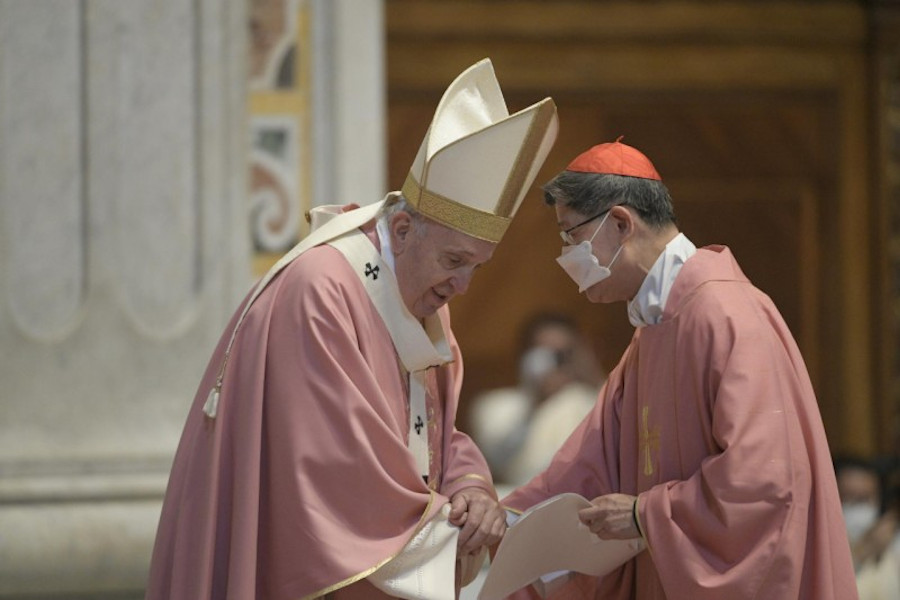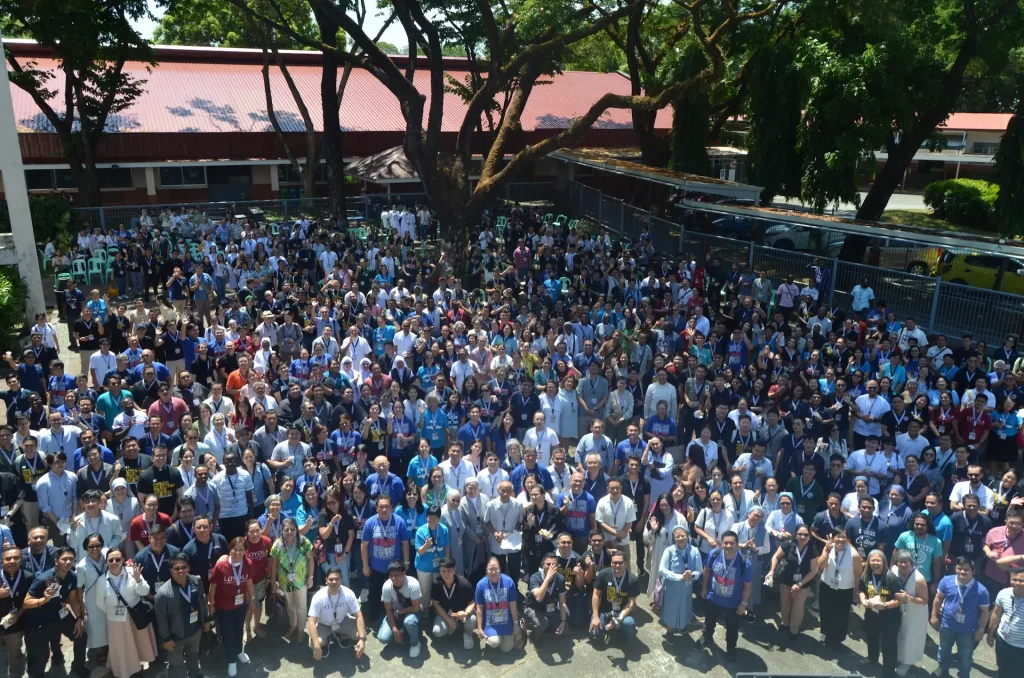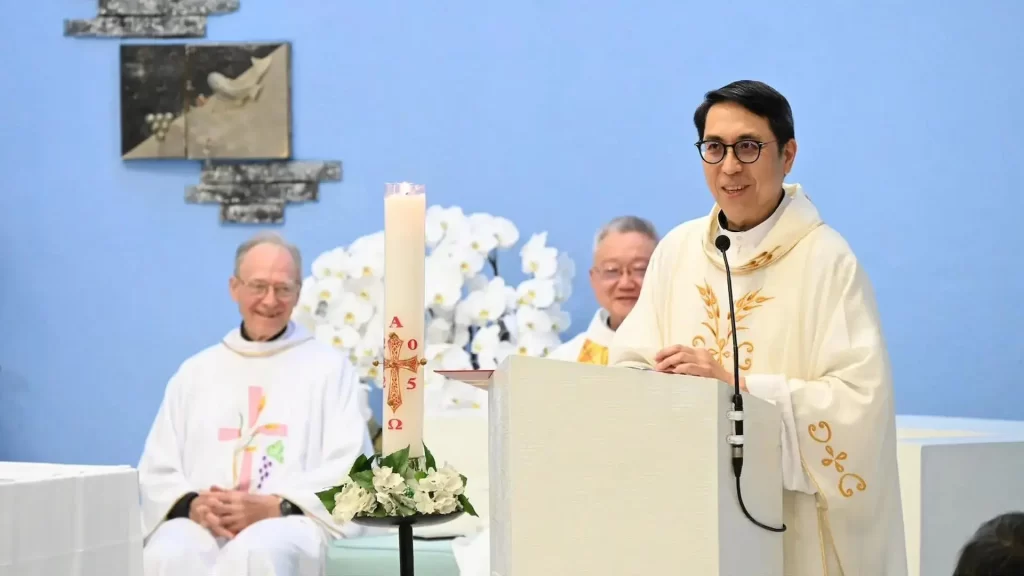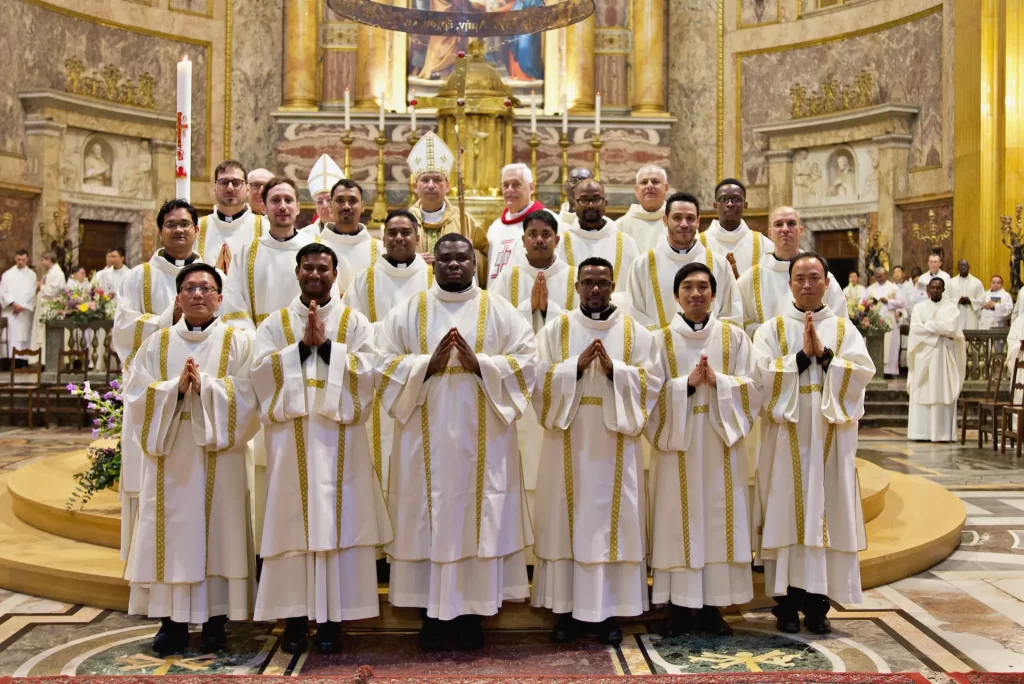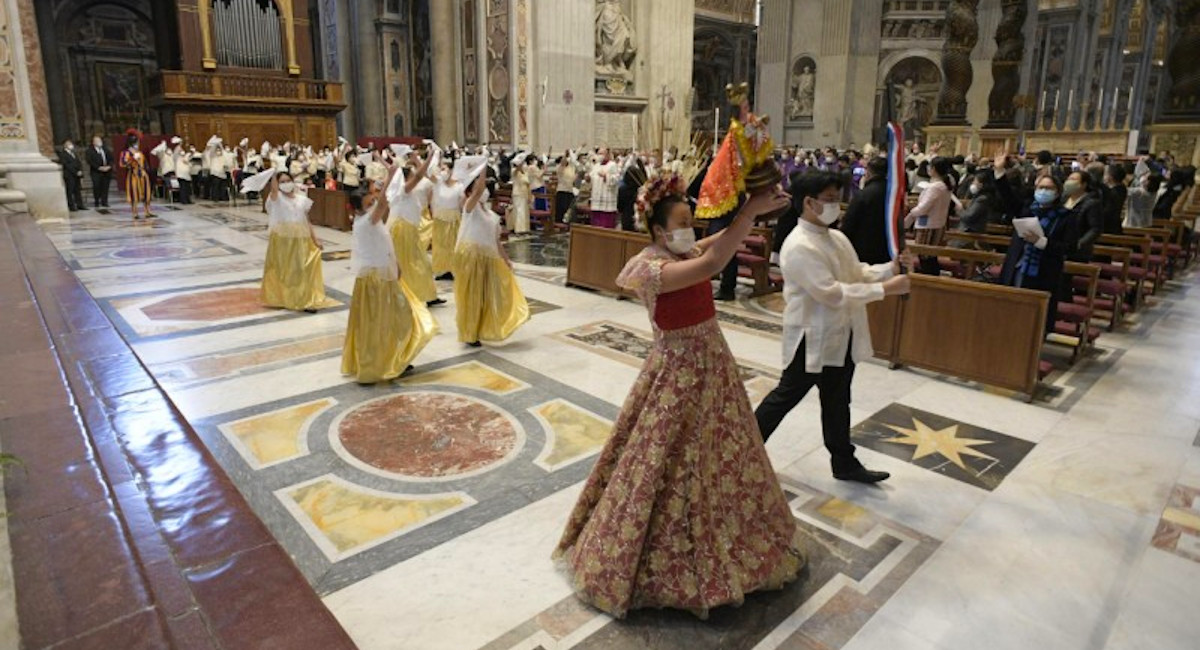
Filipinos in Rome take part in a Mass in St Peter’s Basilica celebrated by Pope Francis on 14 March marking the 500th anniversary of Christianity in the Philippines
The Philippine Church formally launched the yearlong commemoration of 500 years of Christianity with the opening of the “Holy Doors” of pilgrim churches across the nation on Easter Sunday, 4 April. Then on 14 April, the Church commemorated the first baptism in the Philippines.
The celebration marks the day in 1521 when the Christian faith reached the Philippines through Portuguese explorer Ferdinand Magellan, who led a Spanish expedition to the so-called “East Indies”. He landed on Homonhon Island in Samar on 16 March 1521. A few days later, the first Mass on Filipino soil was celebrated on 31 March in Limasawa, southern Leyte by Fr Juan de Valderamma, the Augustinian chaplain of Magellan’s voyage. The expedition moved on to the island of Cebu and on 14 April, Fr Valderrama baptised the local tribal leader, his wife, and some 60 local inhabitants to form the first Catholic community.
The Christian faith that arrived in the Philippines 500 years ago is still very much alive today. It is the largest Catholic nation in Asia, and has the third largest number of Catholics in the world. The intensity of the Filipino devotion is evident in their overflowing churches, festive celebrations to honour the saints, and religious processions and penitential rituals that show the fervent piety of the devotees.
Pope Francis acknowledged the enduring faith of the Filipinos during a Mass he led at St Peter’s Basilica in the Vatican on 14 March to celebrate the occasion. He thanked them for bringing the joy of the Gospel to the world. “This joy is evident in your people. We see it in your eyes, on your faces, in your songs, and in your prayer,” said the Pope. He also shared that he often described Filipino women as “smugglers of faith” because they would “sow the faith” wherever they go to work.
It is estimated that there are more than 10 million Filipino migrants living in different parts of the world. Cardinal Luis Antonio Tagle, the former Archbishop of Manila and now Prefect of the Congregation for the Evangelization of Peoples, in his message to Pope Francis during the Mass, stressed the gift of faith of Christian Filipino migrants who have left their families “not to abandon them, but to care for them and their future”.
“When lonely moments come, Filipino migrants find strength in Jesus who journeys with us, the Jesus who became a Child (Santo Niño) and known as the Nazarene (Jesus Nazareno), bore the Cross for us. We are assured of the embrace of our Mother Mary and the protection of the saints. When we miss our families, we turn to the parish, our second home. When there is no one to talk with, we pour our hearts to Jesus in the Blessed Sacrament and ponder His word,” said Cardinal Tagle.
He also pointed to faith as a source of hope for the Filipinos. “By God’s grace, the Filipino Christians have continued to receive the faith, one of the sources of hope in facing poverty, economic inequality, political upheavals, typhoons, volcanic eruptions, earthquakes, and even the current pandemic. As we confess our failure in living the faith in a consistent manner, we also recognise the great contribution of the Christian faith in shaping the Filipino culture and the Filipino nation.”
Fr Primitivo Viray Jr SJ, Provincial of the Philippine Jesuit Province, acknowledges the devotion of the Filipinos to their faith but questions whether that faith has led to the transformation of the country given its “deeply divided and inequitable society”. The quincentennial celebration, he says, is an occasion not only of thanksgiving for the gift of faith but also of conversion, to return to the Lord and address the inequalities confronting not just the Philippines, but the world today.
For the Philippine Jesuits there are two 500-year celebrations this year, that of the Philippine Church, and Ignatian Year, commemorating the anniversary of the conversion of St Ignatius Loyola, the founder of the Jesuits.
“Even more poignant is how we will celebrate during the pandemic. These two occasions call for greater reflection and discernment on finding the most appropriate manner of thanking the Lord for such tremendous gifts of faith and inspiration,” says Fr Viray.
He noted what Pope Francis said during the early months of the pandemic, that the times we are living now can be “a place of metanoia, of conversion”. The deep underlying social, political, economic, and cultural inequalities that the pandemic has exposed call us urgently “not to return to the old normal but to craft a new normal, a new and better world anchored on Gospel values,” says the Philippine Provincial.
“The pandemic can offer an opportune moment together with the twin celebrations of 500 years of Christianity and the 500th anniversary of St Ignatius’s conversion to spur us on to where the Spirit of the Lord is leading us,” he says. “Clearly, the Spirit is leading us to share more deeply in the mission of reconciliation that the Lord calls us.”
Fr Viray points out that the anniversaries, although occasions for celebration, should not give Filipinos an attitude of pride, but one of humility. “Our twin celebrations in the context of the pandemic draw us away from any sense of triumphalism. Instead, they invite us to humbly acknowledge our failures as a Christian nation, and challenge the authenticity of our faith to seek reconciliation in this wounded and deeply divided Philippine society.”
Read Filipino Jesuit and historian Fr René Javellana’s brief account of the history of Christianisation of the Philippines here.

